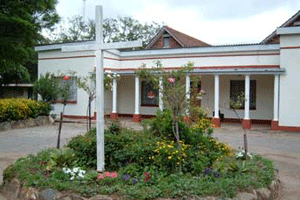
PEOPLE who fled the country during times of political turmoil are still reluctant to come back because the government has failed to create an enabling environment for their return, The Catholic Bishops Conference has said.Report by Our Staff The conference, which is made up of the eight Roman Catholic bishops in the country, said Diasporans found it hard to return because the country had not set up a proper healing and reconciliation programme.
“The task of healing and reconciliation is not helped by the ongoing culture of intimidation and abuse of human rights,” the bishops wrote in their latest monthly pastoral letter.
“Genuine engagement in a process of national healing and reconciliation must become real rather than notional. Without this engagement, the festering sore will remain and Zimbabweans will continue to leave their country in significant numbers.”
An organ of national healing, reconciliation and integration was set up at the formation of the inclusive government, but so far, its work has been hamstrung by a critical lack of resources and political will.
The bishops said while they noted the work being done by the civic society and churches in aiding Zimbabwe citizens in the diaspora, this was akin to “band aid”, as they were just putting a plaster on a festering sore, without healing the wound.
It is estimated that more than three million Zimbabweans fled the country at the height of an economic and political downturn, with most believed to be resident in neighbouring South Africa.
A huge number are said to be in Britain.
The bishops said they felt shamed and pained that many Zimbabweans felt unwelcome in their own country.
- Zim yet to realise peace: CSOs
- Political violence casts spotlight on free, fair polls
- Do not elect corrupt leaders, say Catholic priests
- Building Narratives: That powerful letter from the bishops
Keep Reading
“This experience of being unwanted has been worsened by the overall failure of political discourse within Zimbabwe to focus with serious intent on the exodus of its people,” the letter continued.
“Very few politicians have visited border areas or crossed border areas to witness first-hand the situation of their fellow Zimbabweans.”
The clerical leaders were of the view that politicians were apathetic to the cause of exiled people, as it was not politically expedient to acknowledge the reality of the ongoing displacement of Zimbabweans since the inception of the inclusive government.
“(The) ongoing displacement, at best suggests a political challenge, at worst, political ineptitude, division and failure,” reads the letter.
“The vast majority of those who leave, are seen as politically insignificant and expendable. Their only merit is the remittances sent to prop up a severely depressed economy.”
‘Recognise Zimbabweans in the Diaspora’
The men-of-the-cloth said the diaspora exclusion was particularly acute during times of elections, as they did not have the right to vote.
There have been calls to include postal voting in the new Electoral Act, that will allow Diasporans to vote, but these have often fell on deaf ears.











